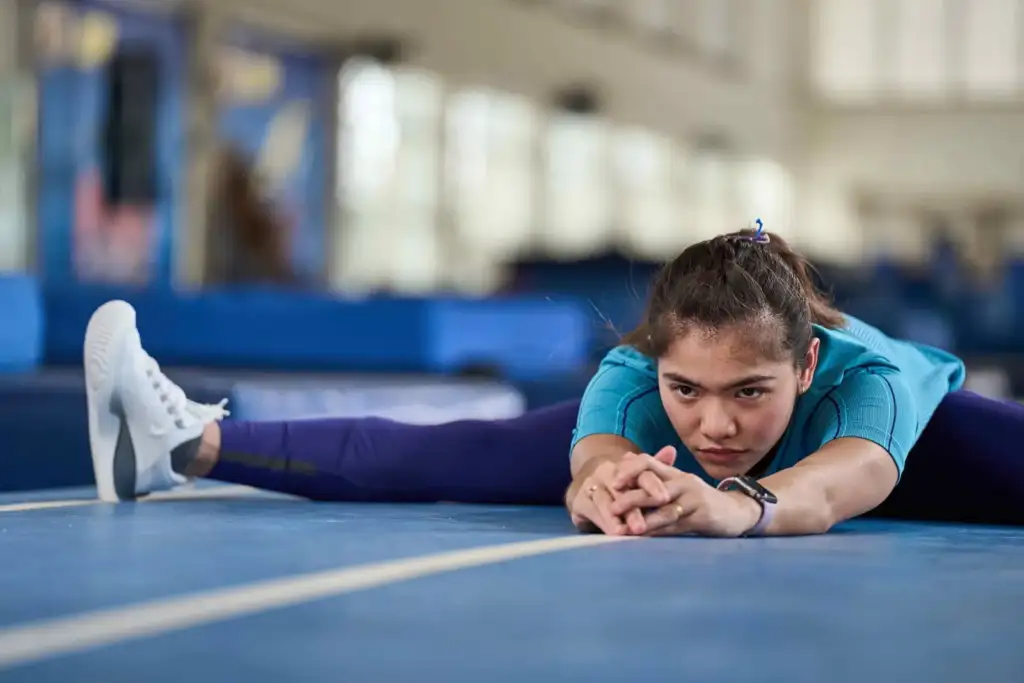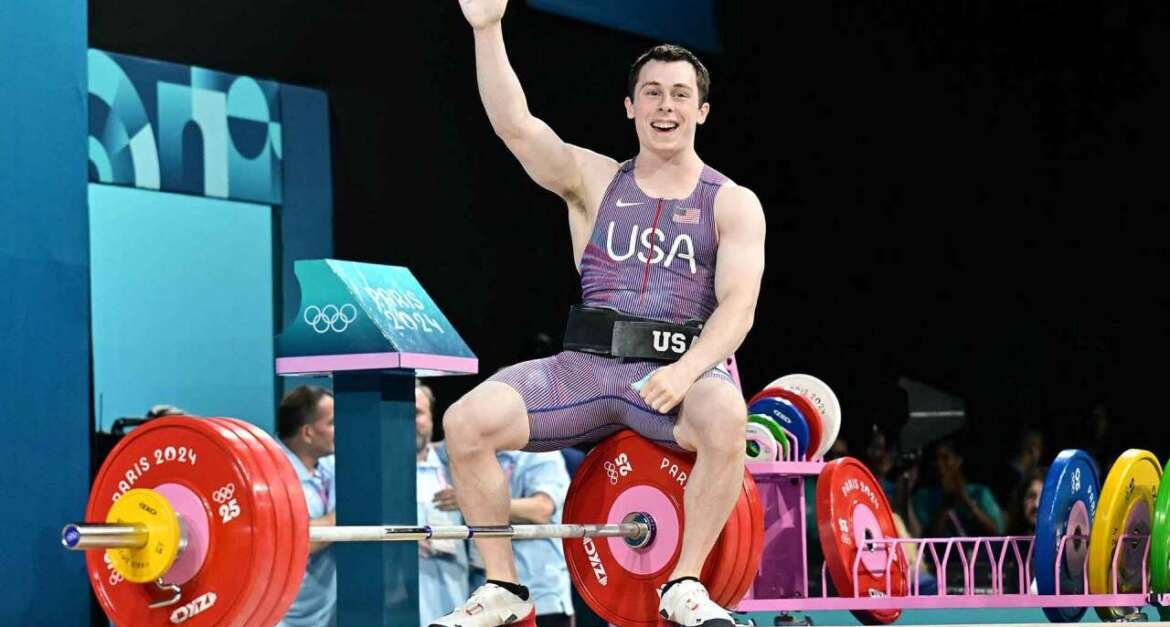The Summer Olympics captivate millions around the world every four years, showcasing the pinnacle of athletic performance and human potential. As an orthopedic sports surgeon, I view the Olympics through a unique lens—appreciating not only the athletes’ incredible achievements but also the meticulous care and training that go into maintaining their musculoskeletal health. While these athletes are at the peak of their physical condition, there are valuable lessons that everyday people can learn and apply to their own lives. In this post, I’ll explore how you can incorporate Olympic-level practices into your daily routine to enhance your overall health and well-being.
The Olympic Training Regimen: A Blueprint for Success
Olympic athletes dedicate years to perfecting their skills, focusing on strength, flexibility, endurance, and injury prevention. Their training regimens are carefully crafted to optimize performance while minimizing the risk of injury. While the average person may not have the time or resources to train like an Olympian, several core principles of their approach can be adapted to suit everyday life.
1. Consistency and Discipline
Olympians train consistently, often multiple times a day, six or seven days a week. This level of commitment highlights the importance of consistency in achieving any fitness goal. For everyday individuals:
- Set a Routine: Establish a regular exercise routine that fits your schedule. Whether it’s a morning jog, an evening yoga session, or a lunchtime walk, consistency is key to seeing long-term benefits.
- Stay Disciplined: Like Olympians, it’s important to stick to your routine, even when motivation wanes. Discipline will help you push through challenges and maintain your progress.
2. Warm-Up and Cool Down
One of the most critical aspects of an athlete’s training is the warm-up and cool-down. These activities prepare the body for intense exercise and aid in recovery.
- Incorporate a Warm-Up: Before any physical activity, take 5-10 minutes to perform a warm-up. This could include dynamic stretching, light jogging, or mobility exercises. Warming up increases blood flow to muscles and reduces the risk of injury.
- Don’t Skip the Cool Down: After exercising, spend time cooling down with static stretches and deep breathing. This helps to gradually lower your heart rate, reduce muscle stiffness, and improve flexibility.

3. Strength and Conditioning
Olympians emphasize strength and conditioning to enhance performance and prevent injury. Strong muscles support joints, improve posture, and contribute to overall health.
- Incorporate Strength Training: Aim to include strength training exercises 2-3 times a week. Focus on major muscle groups like the legs, back, and core. Bodyweight exercises like squats, lunges, and push-ups are effective for building strength without the need for equipment.
- Balance and Flexibility: Incorporate exercises that improve balance and flexibility, such as yoga or Pilates. These activities enhance joint stability and reduce the risk of falls and injuries.
4. Recovery and Rest
Elite athletes understand that recovery is as important as training. Without adequate rest, the body cannot repair and strengthen itself.
- Prioritize Sleep: Ensure you get 7-9 hours of sleep each night. Sleep is when your body repairs tissues, consolidates memories and replenishes energy.
- Listen to Your Body: Pay attention to signs of fatigue or pain. If you’re feeling sore or overly tired, consider taking a rest day or engaging in low-impact activities like swimming or cycling.
5. Nutrition and Hydration
Nutrition plays a pivotal role in an athlete’s performance. A well-balanced diet provides the energy and nutrients needed for training and recovery.
- Eat a Balanced Diet: Focus on a diet rich in whole foods, including lean proteins, whole grains, fruits, and vegetables. These foods provide the vitamins, minerals, and antioxidants necessary for muscle repair and overall health.
- Stay Hydrated: Dehydration can impair physical performance and increase the risk of injury. Aim to drink water regularly throughout the day, especially before, during, and after exercise.
6. Mental Resilience
Olympic athletes train their minds as rigorously as they train their bodies. Mental resilience is essential for overcoming obstacles and staying focused on long-term goals.
- Practice Mindfulness: Incorporate mindfulness techniques, such as meditation or deep breathing exercises, into your daily routine. These practices help reduce stress, improve concentration, and enhance mental clarity.
- Set Realistic Goals: Like Olympians, set achievable goals for your fitness journey. Break down larger goals into smaller, manageable steps to maintain motivation and track progress.
Applying Olympic Principles to Everyday Life
While the life of an Olympian may seem worlds apart from our daily routines, the principles they follow can be applied to anyone’s life, regardless of age, fitness level, or experience. Here’s how you can incorporate these principles into your daily routine:
- Create a Fitness Plan: Start by setting realistic fitness goals and creating a plan that includes a mix of aerobic, strength, and flexibility exercises. Tailor the plan to your current fitness level and gradually increase the intensity as you progress.
- Incorporate Movement into Your Day: Even if you can’t dedicate large blocks of time to exercise, find ways to incorporate movement into your day. Take the stairs instead of the elevator, walk or bike to work, or do a quick workout during your lunch break.
- Stay Accountable: Track your progress and hold yourself accountable. Use a fitness app, keep a journal, or work out with a friend to stay motivated and on track.
- Practice Self-Care: Make time for self-care activities that promote physical and mental well-being. This could include getting a massage, taking a relaxing bath, or spending time outdoors in nature.
- Enjoy the Process: Finally, remember that fitness is a lifelong journey. Celebrate your successes, learn from setbacks, and most importantly, enjoy the process of becoming a healthier, stronger version of yourself.

Conclusion
The Summer Olympics serve as an inspiration to many, showcasing the incredible capabilities of the human body and spirit. While most of us will never compete on the world stage, we can still take valuable lessons from Olympians and apply them to our everyday lives. By embracing consistency, proper training, recovery, nutrition, and mental resilience, we can improve our overall health and well-being, ensuring that we stay active and vibrant for years to come.
